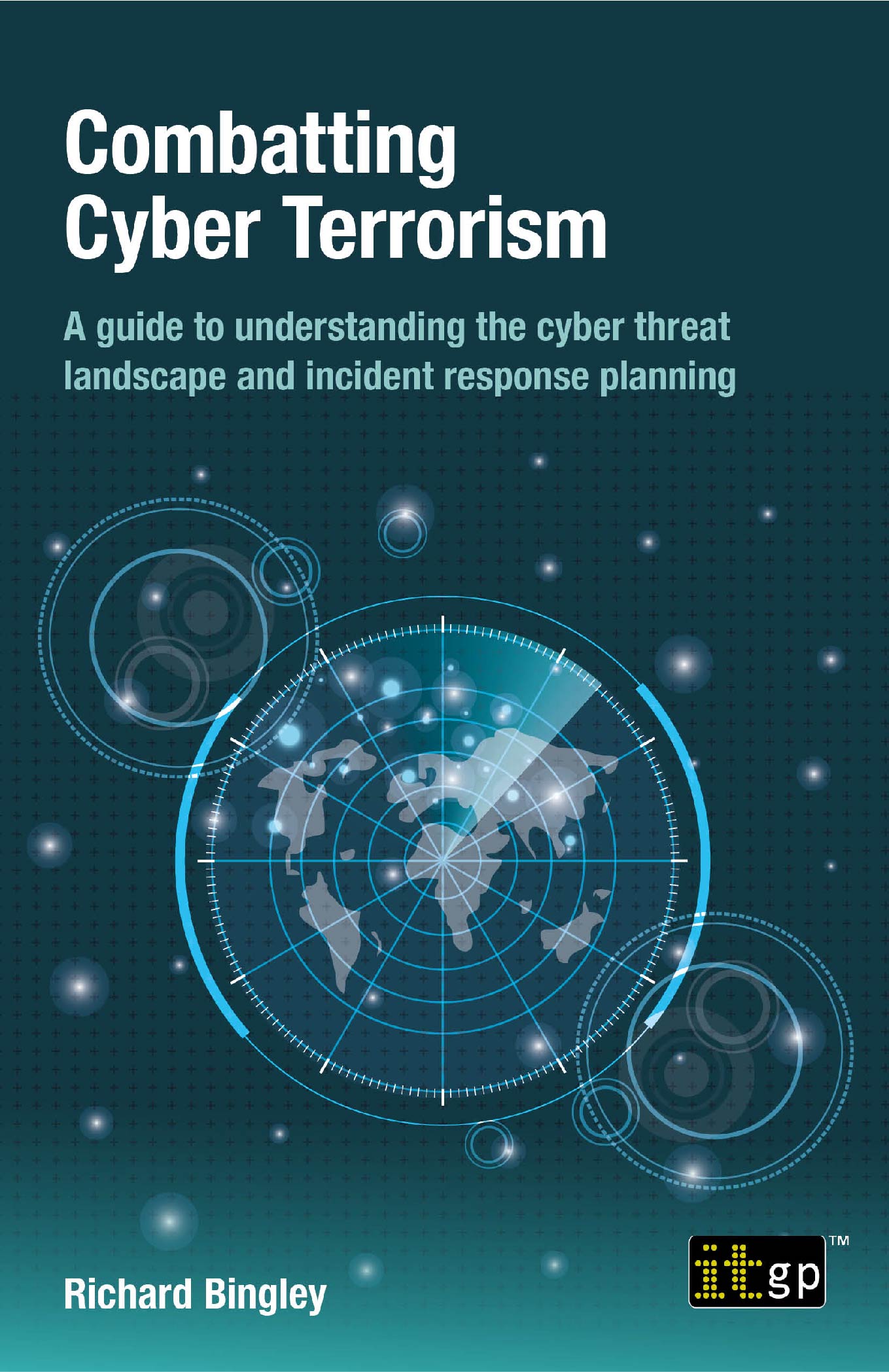
In his second book with IT Governance Publishing, Richard Bingley’s Combatting Cyber Terrorism – A guide to understanding the cyber threat landscape and incident response planning analyses the evolution of cyber terrorism and what organisations can do to mitigate this threat.
This book discusses:

Paperback formats are available for all IT Governance Publishing titles on request.
Please contact us for further information:
Increasingly, cyber security practitioners are confronted with an alarming phrase: cyber terrorism. For many, it conveys fear and hopelessness. What is this thing called ‘cyber terrorism’ and what can we do about it?
Malicious ICT users, programmers and even programs (including much AI-powered software) have all been instrumental in recruiting, inspiring, training, executing and amplifying acts of terrorism. This has resulted in the loss of life and/or life-changing physical injuries that could never have occurred without support and facilitation from the cyber sphere. These types of attacks can be encapsulated by the phrase ‘cyber terrorism’.
The Internet is an integral part of everyday life for the vast majority of organisations and people. Web access has become viewed as an essential human right, and a prerequisite of citizenship and societal belonging.
Despite well-meaning interventions by a range of influential stakeholders (tech companies, governments, police and academia), our computer networks remain riddled with cyber threats. Accessing terrorism content does not require much in the way of research skills, technical ability or patience.
This book recounts case studies to show the types of threats we face and provides a comprehensive coverage of risk management tactics and strategies to protect yourself against such nefarious threat actors. These include key mitigation and controls for information security or security and HR-related professionals.
Richard Bingley has led and operated a number of vital security projects including the London 2012 Olympics and Sochi 2014, as well as serving as executive director of London First’s security and resilience division. He’s the co-founder and director of the business security briefing service CSARN.org.
His book publications to date include:
Richard was senior lecturer for security and resilience at Buckinghamshire New University (2012–15) and director of the BNU Business School. He is CEO and principal of the CSARN Global Cyber Academy and a frequent media commentator on cyber security and future technology issues, including recently for the London Evening Standard and Sunday Express.